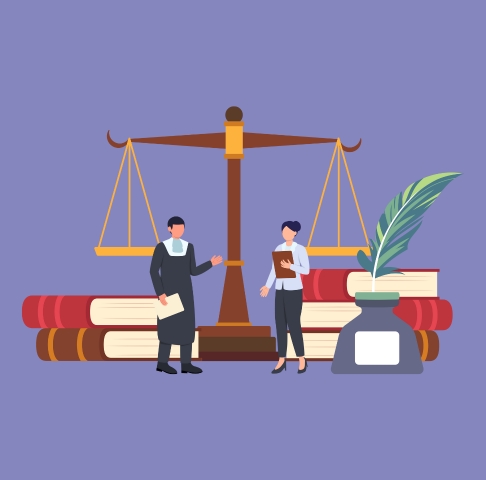When you can no longer make decisions, who decides for you? Here’s why you should make a Lasting Power of Attorney while you can.
As our society progresses, I find that most of us have clearer perspectives on death and what we want when it happens. It isn’t pleasant to discuss but at least among those around me, we’re generally comfortable discussing what to do in the event of our death and where the finances for our funeral costs should come from, right down to who executes our will.
However, what we rarely talk about is what happens if we become unable to make decisions independently, which could be the case with dementia or severe disability.
A Lasting Power of Attorney, or LPA, is an option you should undertake while you can – and here are some reasons why you should set it up while you’re capable of doing so.
- What is a Lasing Power of Attorney (LPA)?
- Benefits of making a Lasting Power of Attorney (LPA) for health and welfare
- Recap of what a donee oversees
Already set up your LPA? Check out Part 2 of this article for common questions people ask about LPA.
What is a Lasting Power of Attorney (LPA)?
Before jumping into why it’s needed, we need to know what an LPA is.
A recent survey of 1,000 Singaporeans (aged 30 to 79) found that most aren’t aware of an LPA, and respondents also felt they’re healthy enough for this to be a low-priority matter.1
In the face of mental illness, stroke, dementia or a coma, we’ll be dependent on someone else to make decisions on our behalf. To complicate matters, legal disputes can arise as to who would be the best candidate to execute these decisions – all of which could be avoided by having an LPA in place.
Although they’re both legally-binding documents, an LPA shouldn’t be confused with a will – which deals with the distribution of your assets or any other decisions that only come into effect upon your death.
An LPA allows you (the donor) to appoint another (a donee) to oversee matters while you’re alive but no longer able to make decisions due to diminished or total loss of your mental faculties. An LPA is dissolved upon your death, which is also when a will becomes effective.
An appointed donee generally oversees two areas
1. Personal welfare
- Where you live (medical care facility, with a loved one, etc)
- Daily arrangements (what you wear, eat or do day-to-day)
- Handling your mail
- Who has contact with you
- Any healthcare treatment or medical assistance you need
2. Property and assets
- Decisions relating to your property (selling, buying, renting)
- Handling your bank accounts or investments
- Managing your CPF (transactions or withdrawing funds)
- Household expenditure (groceries, medication, bills)
- Monetary decisions on your behalf
Benefits of making a Lasting Power of Attorney (LPA) for health and welfare
1. To protect the donor – that’s you!
While becoming handicapped or mentally incapacitated would be devastating, it’s important to ask yourself who you’d consider reliable enough to make decisions that are in your best interests if you were in such a situation. Or, if we flip the script, would you like to oversee your loved one’s needs and personal matters if something unfortunate happened to them?
This person could be a parent, a spouse or one of your adult children, or perhaps even a friend. You’ll make this decision with the confidence that you’ll be in safe hands, and they’ll carry out your wishes to the letter.


An LPA must be2:
- made by someone aged 21 or above who is not an undischarged bankrupt and has the mental capacity to understand what he/she is doing
- prepared using prescribed forms (more below); and
- registered with the Office of the Public Guardian (OPG) before mental capacity is lost.
What is the difference between the LPA Form 1 and Form 2?
If you’re appointing a donee online through MyLegacy, you will need to fill in Form 1.
This allows the donor to choose to give the donee general powers with regards to decisions relating to care (i.e., living arrangements as well as discussions with CPF, banks or handling any property sales.
If you wish to appoint more than two donees or give your donees more specific instructions, you’ll need to consult a lawyer to help you with Form 2, which generally concerns more complex arrangements outside of the scope of Form 1.
2. To protect your freedom to choose
Protecting ourselves is important, which is why the freedom of choice is something we should exercise while we can.
An LPA reflects your preferences when it comes to who to have these conversations with if you’re no longer able to. After all, no one wants to be left in the care of someone they didn’t nominate, or worse, may not have their best interests at heart.
Note: It’s possible that some time after appointing a donee, you realise that you require more than one donee or you wish to appoint a new Donee to replace the original – I'll talk more about this in Part 2 of this series.
3. To protect your loved ones
While appointing a donee is largely about ensuring you’re looked after, it is also about safeguarding your loved ones.
Not enforcing an LPA could mean that your family would have to go through a tedious court process – an undoubtedly time-consuming and unnecessary expense – just to be able to execute decisions for you. A recent news report described how a family member spent six months and S$7,000 in court fees for the right to care for a sister with dementia3 – time and money which could’ve been saved if an LPA was made prior.
During a time where your loved ones would already be occupied with your care needs, having an LPA in place shields them from further stress which could stem from making difficult healthcare or financial decisions on your behalf or dealing with conflicting views within the family.
4. To protect your timeline of care
If the unfortunate were to happen, you’d want to receive the care you need without delay.
Setting up an LPA means a shorter wait time in more ways than one. Your donee will not need to wait for any pending court orders to execute medical decisions for you, and insurance payout decisions can also be concluded in a timely manner4.
For example, if an individual were to be certified severely disabled due to dementia and hence qualifies for monthly payouts under CareShield Life and/or a private supplement plan, a donee could immediately make the decision to use the payout to cover the cost of hiring a domestic helper, which might in turn mean that family members don’t have to fork out their own money to get the patient the care they require at a vulnerable time in their life.
To read more about long-term care and how your CareShield Life coverage can help in the event of severe disability, read our article here.
Recap: What does a donee oversee?
Now that I've given you a clearer view on how crucial it is to have a donee during unexpected situations, you may also have other questions relating to appointing one.
What happens if you change your mind about who you’ve appointed? Can you change your donee and how do you do it? What if your LPA left out touch points relating to the duty of care which you’d now like to include?
These are covered in Part 2, so check it out.
FAQ on other common questions about Lasting Power of Attorney (LPA)
These are adapted from My Legacy @LifeSG, which is a useful resource for legacy planning.
1. How do I perform bank transactions if I am a donee?
You can act on a donor's behalf if a registered medical practitioner certifies that the donor has lost mental capacity. When dealing with banks, you need to present the original registered LPA and a recent (not older than six months) medical report. If the donor's condition is permanent, the latest medical report indicating this fact is sufficient. If you qualify for a Softcopy LPA, you can use the 'Share' feature in the OPG's e-service portal.
2. How much do LPA Certificate Issuers charge?
The fees vary depending on the complexity of the case. You can expect to pay anywhere between S$25 and S$80, with S$50 being the most common fee for certifying LPA Form 1. For a list of the top 10 Certificate Issuers, visit the OPG's website.
3. Can I use a hardcopy of the registered LPA for transactions?
Yes, but a digital LPA is recommended.
A hardcopy LPA might not be updated to reflect changes like the death or bankruptcy of a donee, leading to delays since the organisation needs to manually verify its validity with the OPG.
Using the digital LPA for transactions is as simple as logging in to the Office of the Public Guardian Online (OPGO) with your Singpass and sharing the LPA with the organisation you are dealing with.
4. When and how will my donee use the LPA to make decisions for me?
Your donee can only make decisions for you if a registered medical practitioner certifies that you have lost mental capacity.
When this happens, they can transact with public and private organisations by providing:
- Your registered LPA (shared via the OPG Online)
- The medical report confirming your loss of mental capacity
- Other necessary supporting documents as required by the organisation
The decisions your donee can make depend on the powers granted in your LPA. For instance, a donee with property and affairs powers can manage your finances and transact with banks on your behalf.
5. Can I submit a hardcopy LPA application?
All LPA applications are to be submitted online. For help with this, you can visit a ServiceSG centre or contact the OPG.
A hardcopy LPA application may be accepted under these conditions:
- you or your donees (including replacement donee) are unable to complete the application online due to physical disability or other circumstances
- the prepare your LPA service on My Legacy and the OPGO is down
- you or your donees (including replacement donee) do not have an electronic device to receive SMSes or to create and access the Singpass account
- you or your donees (including replacement donee) are not eligible for a Singpass account
Notes
1. Source: The Straits Times© Singapore Press Holdings. Extracted with permission. “Free LPA certification under new campaign to promote better pre-planning”, 22 July 2023.
2. Source: Singapore Legal Advice, “6 Reasons to Make Your Lasting Power of Attorney While You Still Can”, 14 January, 2019.
3. Source: The Straits Times© Singapore Press Holdings. Extracted with permission. “Free LPA certification under new campaign to promote better pre-planning”, accessed 11 August 2023.
4. Source: PKWA Law Practice LLC, “Lasting Power of Attorney”, accessed 20 August, 2023.








